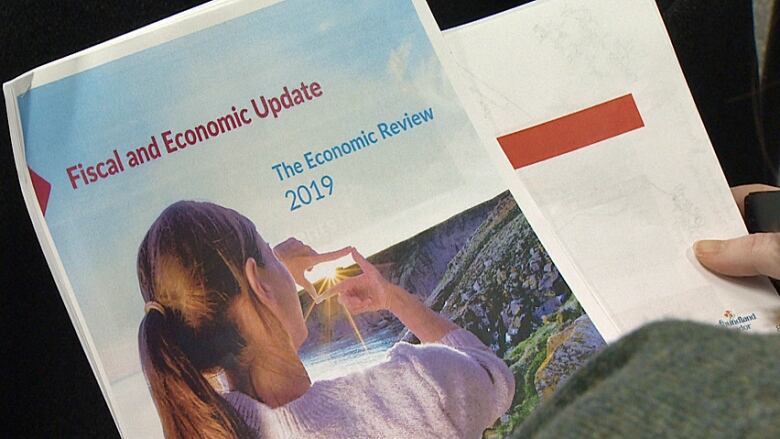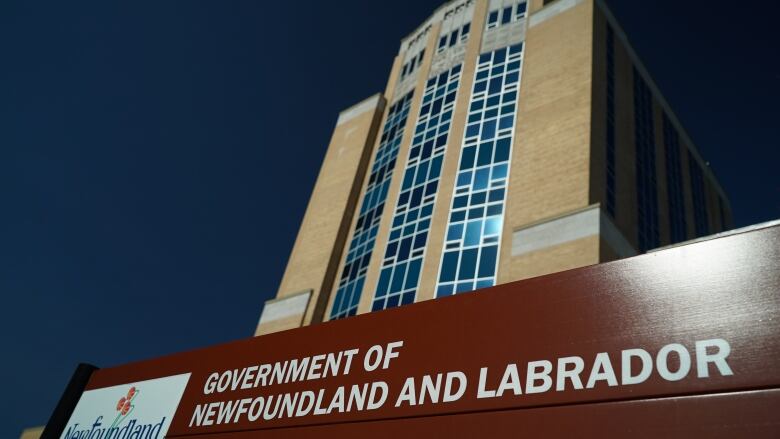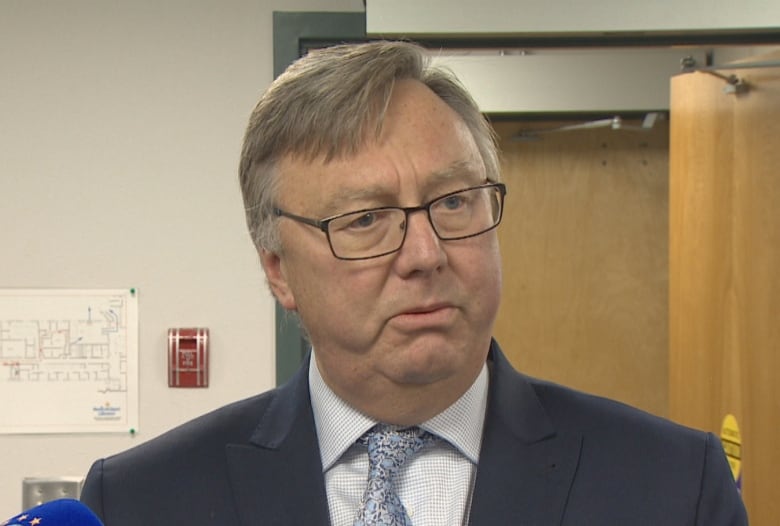$392M shortfall for N.L., as oil-related revenue drops
Province still on track to book a surplus in 2019-20, because of Atlantic Accord windfall

As oil goes, so goes Newfoundland and Labrador's finances and oil has not been all well this year.
An unexpected shutdown of the Hibernia offshore project and lower-than-projected oil prices have combined to punch a $231-million hole in the province's revenue projections for the 2019-20 fiscal year.
That's roughly two-thirds of the overall government revenue shortfall of $392 million, compared with original budget estimates.
The financial figures were released as part of the government's fall fiscal update Wednesday at Confederation Building in St. John's.
The new numbersonce againcast into the spotlight the volatility of budget-making in resource-dependent provinces.
"We control what we can control," Finance Minister Tom Osborne said.
He told reporters the government is working to get through tough times in the near term, to better days down the road.
"We've got an exceptionally bright future in this province," Osborne said. "The challenge for us is bridging from where we are, to where we're going to be."
But he noted that, in times when the oil tide is ebbing instead of flowing, "it's not an easy job" to manage the books.
"Being premier of the province or finance minister when you've got oil royalties coming in and the chequebook is always on the table is a lot easier than being the premier of the province or the minister of finance today, when every day there are challenges," Osborne told reporters.

While oil fluctuations account for most of the revenue loss this year, the remainder is attributable to changes in how much the province expects to collect fromtaxes, and methodology changes that affect the cash flow for things like the federal gas tax and cost-shared infrastructure programs.
The province remains on target, however, in terms of how much it expects to spend over the course of the year.
That estimate remains $8.4 billion, or $24 million less than initially forecast.
"That's where we can push, and find savings," Osborne told reporters.
"We can't control if there's an oil shutdown. And we can't control if the price of a barrel of oil goes down."
Surplus coming, thanks to cash from Ottawa
Technically, the Newfoundland and Labrador government is still on track to book a massive surplus in 2019-20 nearly $1.56 billion.
But that number includes a windfall of federal cash from the new Atlantic Accord agreement. The net benefit from that arrangement, which runs until 2056, is $2.5 billion.
Even though the province won't receive most of that revenue for years, or even decades, it is being booked now.

Take out that cash, and the fiscal reality is much more grim.
Without the Accord money, the province initially estimated that it would have booked a $575-million deficit this year. Now, with the big revenue drop, that number has ballooned to $944 million.
That gusher of red ink throws into doubt the Liberal government's plan to return to surplus by 2022.
Osborne said"we're not giving up on returning to surplus," but acknowledged that doing so will be "challenging."
Too much dependence on oil:sayPCs, NDP
Tory finance critic Tony Wakeham said the mid-year fiscal update "really highlights again that we are focused on oil revenue." He criticized the Liberal record on economic diversification.
As for that planned return to surplus, Wakeham was skeptical.
"The key word there was 'hope.' Because I think [Osborne]hopes that oil prices will go up. I think he hopes that we will get more oil production. I have seen nothing that outlines any kind of a plan to do that," said Wakeham.

Meanwhile, NDP Leader Alison Coffin suggested alternativeapproaches.
"There are other ways that we could consider balancing our budget," Coffin said.
"For example, not once have I heard anyone mention a wealth tax. Not once have I ever heard people say, 'Well, maybe giving tax breaks to the tune of $40 million to a company that is otherwise profitable, might be a way of getting more revenues in.' So we really need to think differently about how we are approaching balancing our budget."












_(720p).jpg)


 OFFICIAL HD MUSIC VIDEO.jpg)
.jpg)



























































































